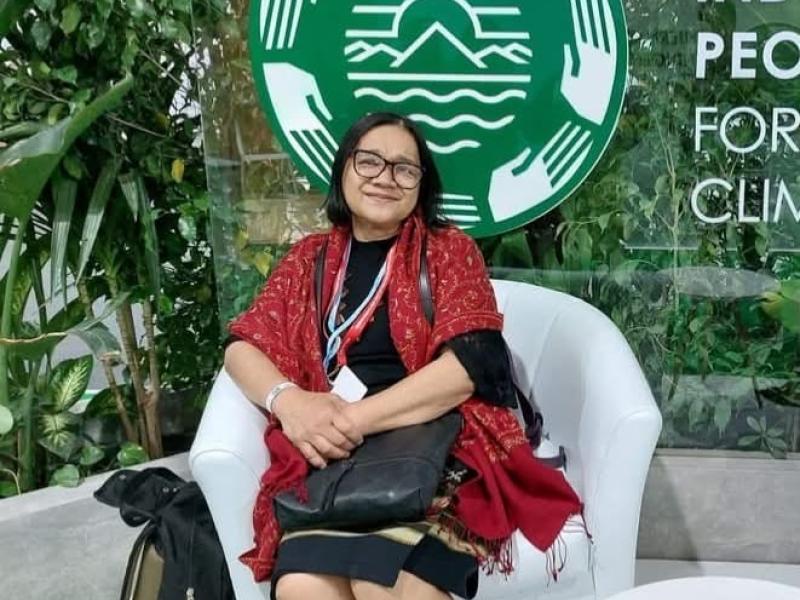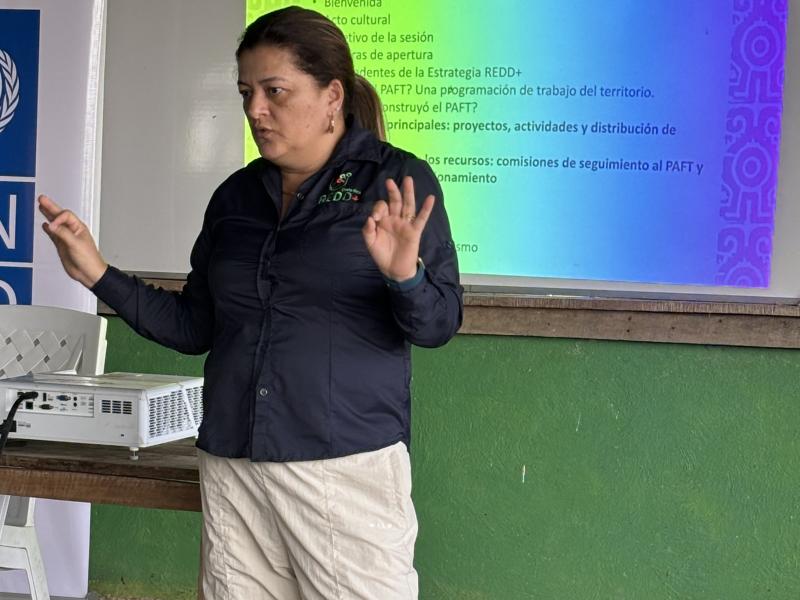In recognition of International Women’s Day (IWD), the UN-REDD Programme celebrates the remarkable contributions of women leaders from its partner countries. These women play a crucial role in forest conservation and climate advocacy, addressing urgent environmental challenges that impact nations and communities worldwide.
With this year’s IWD theme on “Rights. Equality. Empowerment”, these women are also demonstrating what it takes to achieve progress in addressing systemic barriers and biases that women face and promoting gender equality and women’s empowerment within their forest conservation work.

As Grace Balawag, the assistant coordinator for the climate and biodiversity programme at Tebtebba (Indigenous Peoples’ International Centre for Policy Research and Education), highlights, “the challenge of discrimination against Indigenous Peoples, as well as Indigenous women, is still very much present in communities and countries where we conduct trainings”, she said, adding that men are still the main decision-makers.
“But we are always very clear on how to engage Indigenous women in conservation processes, including REDD+,” said Balawag, who also plays a key role in organizing the Asia Indigenous Women Network (AIWN). She emphasized that, “all of our partners are required to have gender-related priorities”.
While significant barriers to gender equality remain, with the right action and support, gender biases can be challenged, and progress can be made by women and for women.
Read more on Grace's journey here

This is precisely what María Elena Herrera Ugalde, Director of Development and Marketing of Environmental Services for Costa Rica’s National Forestry Financing Fund and Director of National REDD+ Strategy, strives to do in her work. María Elena and her team, in collaboration with the National Institute of Women and other institutions, developed a Gender Equality Award for Productive Units that promotes equality for women, their economic autonomy and their efforts to conserve nature.
“We listen and hear these women speak, saying how grateful they are to have been considered and to demonstrate the work they are doing – but with a (sense of) responsibility, as you are taking women out of invisibility and bringing them into a process,” she said.
“It has been a very rich process of getting to know what these women do, how they participate, how they make decisions, and their contribution to the economy. How can you not feel motivated to help these women?” she added.
Read more on Maria's journey here
On International Women’s Day, we at the UN-REDD Programme would like to echo the words of wisdom and experience from these outstanding women leaders, and others like them who are accelerating action on gender equality.
Women are agents of change. As poignantly highlighted by Maria Elena, we must continue to elevate women’s participation and achievement. “To empower them to move forward, to tell them there is a future, that we can get things done,” she said. “Sometimes the process might be slow, but we are moving forward. Drop by drop, the glass is filling up and little by little, we can do things. This is a matter of patience.”
By: Elizabeth Eggerts, UNDP/UN-REDD Gender Specialist


